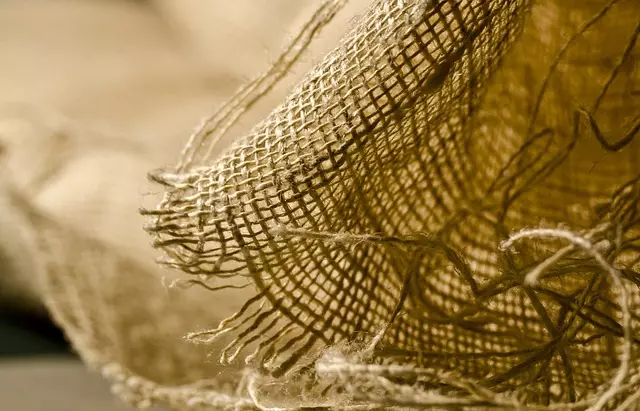The Malay leaf, also known as Centella asiatica, is a natural supplement gaining prominence in sports nutrition for its ergogenic benefits. Traditionally used in Southeast Asian medicine, this adaptogen has been shown to enhance microcirculation, which is critical for muscle function and overall physical performance. Its active components, such as asiaticoside, asiatic acid, and brahmoside, contribute to its ability to regulate inflammation and oxidative stress, potentially reducing recovery time and preventing overtraining. By incorporating Malay leaf into their training routines, athletes may experience improved stamina, quicker reaction times, and a reduction in mental fatigue, all contributing to optimal athletic performance. The supplement's anti-inflammatory properties also aid in muscle soreness relief and skin health restoration, making it a valuable addition for athletes seeking to enhance their conditioning and competitive edge. Clinical studies support its effectiveness in promoting health and wellbeing, underscoring its role as a natural performance booster for endurance and stamina. To achieve peak athletic performance with Malay leaf, precise dosing and timing are key, requiring collaboration between coaches, trainers, and nutritionists to tailor its use to individual needs alongside personalized dietary and training protocols. This holistic approach not only leverages the Malay leaf's potential for energy, focus, and immune system support but also aligns with a commitment to performance enhancement while prioritizing athlete health.
Discover the transformative impact of Malay Leaf on athletic performance, as we explore its pivotal role in achieving peak physical conditioning. This article delves into the scientifically supported benefits of incorporating Malay Leaf into training regimens, offering a comprehensive guide for coaches and athletes alike. From enhancing endurance to boosting recovery, uncover how this natural performance enhancer can be strategically integrated into athletic development programs for optimal results. Join us as we navigate the potential of Malay Leaf in maximizing athletic potential.
- Maximizing Athletic Pinnacle: The Role of Malay Leaf in Enhancing Physical Conditioning
- Harnessing the Power of Malay Leaf for Peak Performance: A Deep Dive into Its Benefits for Athletes
- Strategic Integration of Malay Leaf in Training Programs: A Blueprint for Optimal Athletic Development
Maximizing Athletic Pinnacle: The Role of Malay Leaf in Enhancing Physical Conditioning

The pursuit of peak physical conditioning is a multifaceted endeavor that demands a comprehensive approach to athletic performance support. Among the myriad strategies employed, natural supplementation has garnered significant attention for its potential to enhance endurance, strength, and recovery. One such supplement that has been the subject of increasing interest in the realm of sports nutrition is the Malay leaf, also known as Centella asiatica. This herbal remedy, steeped in traditional medicine practices, particularly in Southeast Asia, has been historically utilized for cognitive enhancement and wound healing due to its adaptogenic properties. Recent scientific studies have begun to elucidate the mechanisms by which Malay leaf operates within the body, revealing its capacity to improve microcirculation, a critical factor for optimal muscle function and overall physical performance. The active constituents in Malay leaf, including asiaticoside, asiatic acid, and brahmoside, are believed to contribute to its ergogenic effects by modulating inflammation and oxidative stress, thereby reducing recovery time and mitigating the risk of overtraining. Athletes integrating Malay leaf into their regimen may observe enhanced stamina, quicker reaction times, and a reduction in mental fatigue, all of which are pivotal for achieving and maintaining peak athletic performance. As such, the inclusion of Malay leaf as part of a holistic training program could prove to be a valuable addition for those striving to reach their physical limits.
Harnessing the Power of Malay Leaf for Peak Performance: A Deep Dive into Its Benefits for Athletes

The Malay leaf, a potent botanical supplement derived from the Centella asiatica plant, has long been revered in traditional Southeast Asian medicine for its restorative properties. Athletes looking to enhance their peak performance can benefit significantly from integrating this natural compound into their training regimen. Rich in triterpenoids, particularly asiatic acid, the Malay leaf plays a crucial role in promoting healing and improving skin integrity, which is essential for athletes subjected to rigorous training and competition. Its anti-inflammatory properties aid in reducing muscle soreness and fatigue, allowing for quicker recovery times and sustained performance levels over extended periods. Furthermore, the Malay leaf has been shown to support cognitive function and mental clarity, which are vital aspects of athletic performance. By potentially improving reaction times and decision-making under pressure, athletes can experience a significant edge in their respective sports, making it a valuable addition to any performance enhancement strategy. Its efficacy is further underscored by scientific research that supports its use for improving overall health and wellness in athletes, contributing to the optimization of their physical conditioning and athletic prowess.
Strategic Integration of Malay Leaf in Training Programs: A Blueprint for Optimal Athletic Development

The Malay leaf, scientifically known as Gynostemma pentaphyllum, has garnered attention in the realm of athletic performance enhancement due to its rich nutrient profile and medicinal properties. Its strategic integration into training programs offers a multifaceted approach to athlete development, focusing on improving endurance, stamina, and recovery times. This herbal supplement is particularly celebrated for its adaptogenic qualities, which help athletes manage stress and maintain peak physical conditioning. Research has indicated that the Malay leaf can play a pivotal role in optimizing athletic performance by augmenting oxygen uptake efficiency, a crucial aspect of endurance sports. Additionally, its antioxidant content contributes to the reduction of muscle fatigue, allowing for more intense and prolonged training sessions without compromising recovery. The inclusion of Malay leaf in a structured training program can therefore be seen as a blueprint for optimal athletic development, providing a natural edge to athletes looking to enhance their performance metrics and achieve their full potential.
Incorporating the Malay leaf into training regimens requires careful consideration of dosage and timing, as well as individual athlete needs and responses. Coaches and trainers should work closely with nutritionists to determine the most effective way to integrate this supplement into an athlete’s routine, ensuring that it complements other dietary and training strategies. By doing so, athletes can harness the full benefits of the Malay leaf, leading to improved energy levels, enhanced focus, and a robust immune system, all of which are critical for sustained athletic excellence. This holistic approach to athlete development not only leverages the unique properties of the Malay leaf but also aligns with the broader objectives of maximizing performance while maintaining health and well-being.
In conclusion, the exploration of Malay Leaf’s role in achieving peak physical conditioning through athletic performance support is multifaceted and promising. The integration of this natural supplement into training programs can be a strategic advantage for athletes seeking to enhance their endurance, strength, and recovery. By understanding its benefits and implementing it effectively within a comprehensive training regimen, athletes can unlock their full potential. The evidence suggests that Malay Leaf has the capability to significantly contribute to optimal athletic development, making it a valuable addition to the toolkit of any serious competitor aiming for excellence in their sport.






